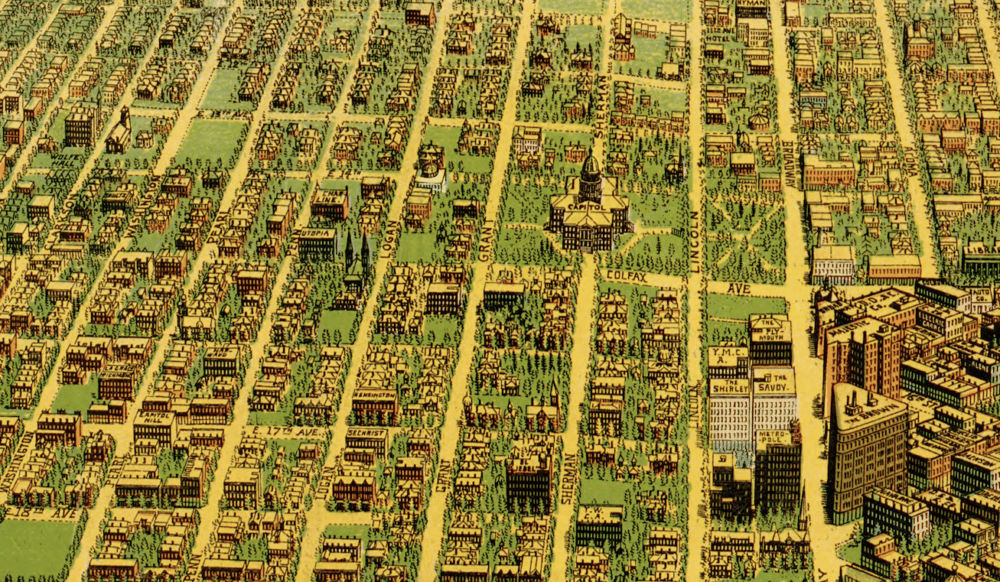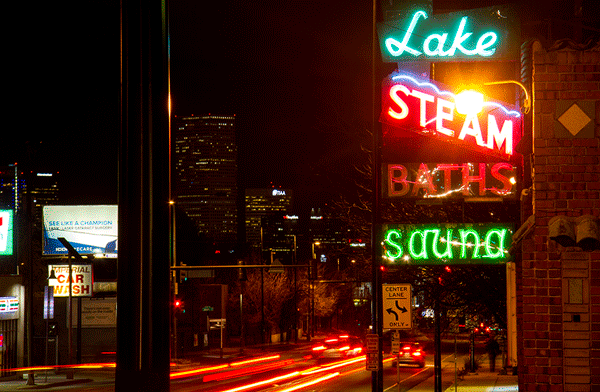
We've talked to tons of people about Colfax Avenue, and one word keeps coming to the surface: "grit."
Sometimes, it's a euphemism. Lately, though, it's a marketing point.
In years past, "gritty" has seemed like a way to say that a place has "social woes," to use another euphemism. It is the version of city life that dominated American conceptions in the 1970s and '80s -- broken windows, graffiti, sirens, people in pain, narcotics and refuse.
Back in 2007, The New York Times asked whether Denver would "sanitize Colfax Avenue's legendary grit." East Colfax is known for "gritty, run-down buildings," The Denver Post reported last year. On West Colfax, it's a "juxtaposition of glitter and grit," according to an arts district director, or "glitz and grit," in Westword.
“It goes back to the stuff of where it was supposed to be the wickedest street in the city," said Maggie Price, a Congress Park resident of 22 years. "Grit to me probably means it’s not as smooth as other places — not as schmoozy.”
She thinks the reputation's overblown. "It’s still this melodramatic thing: I went to Colfax and I survived," she said.
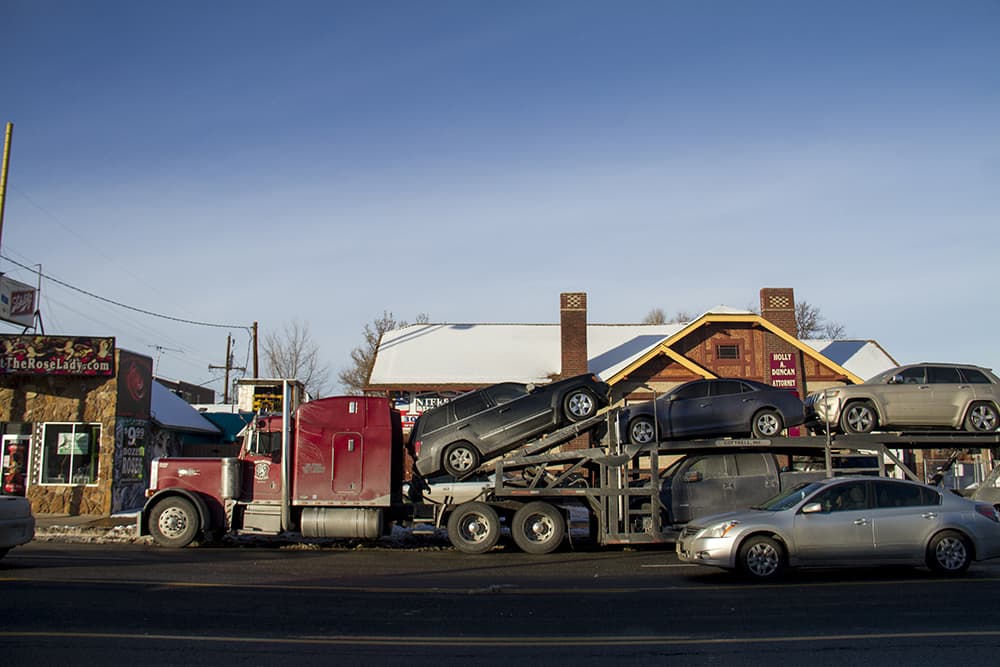
Of course, it can be a different story on different parts of the avenue. I asked Marcē Jones, who says he comes to West Colfax to visit his siblings in their motels, what the word "grit" means to him.
“It’s very tough. It’s hard to survive out here," the 31-year-old responded. He might like Merriam-Webster's third definition of grittiness: "tough, uncompromising realism." A place where you can't avoid what's wrong.
Others see grit as a point of pride. For them, "grit" doesn't mean "grime." They go by another secondary definition: "firmness of mind or spirit."
Or it can be the way it's used on a package of sandpaper -- to say that something is densely textured, which is a fair way to define the tightly packed businesses and people you might find on the avenue.
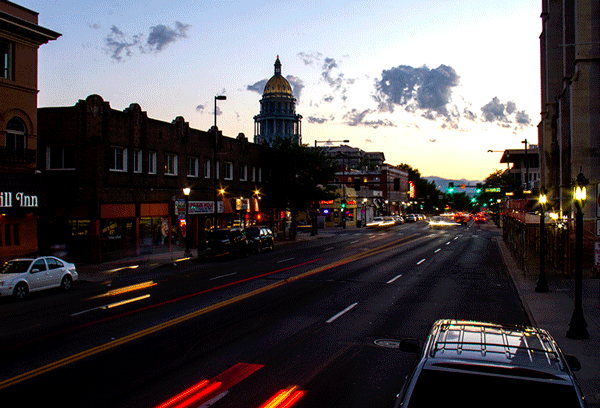
Denver city planner Curt Upton has been supervising two sprawling planning projects for eastern Denver. "Keeping it gritty -- like 'Keep Austin Weird.' It’s kind of getting at the same thing," he told Denverite.
"I’ve heard the analogy, 'Let’s not make this Disneyland.' ... People wanted to retain that character while also balancing these major, transformative improvements.”
So, if a developer or a new business owner says they want to keep Denver's "grit," you could read it a couple ways.
Maybe they're exoticizing the history of the place -- kind of like the bar owner in Brooklyn who faced massive backlash for playing up the "bullet holes" in her wall.
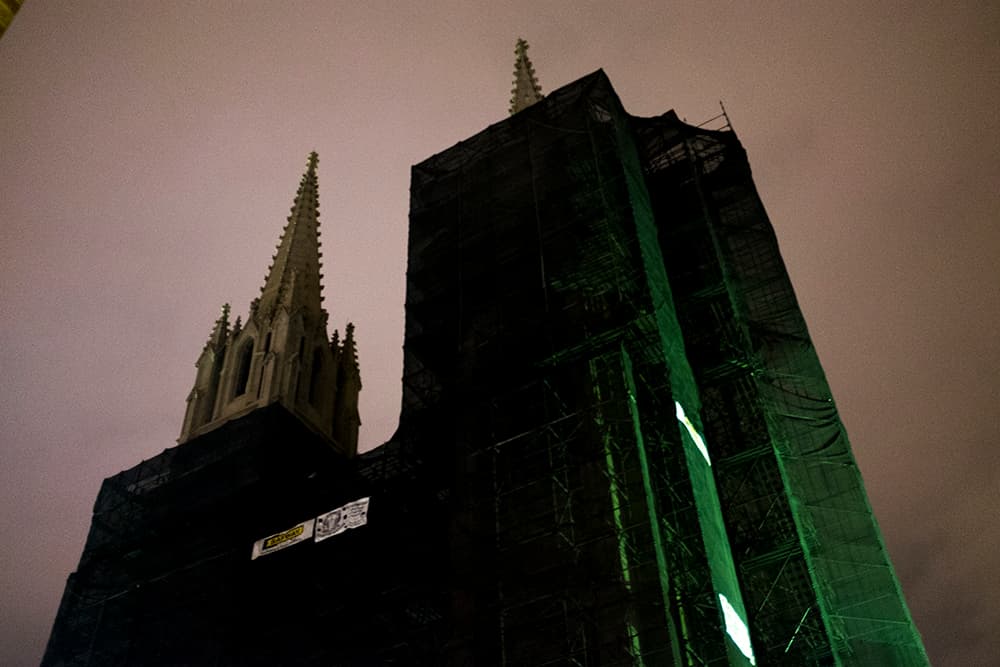
Or maybe they're trying to show some respect for the way things are. Instead of saying that they're "revitalizing" or bringing "new vibrance," they're shifting to language that doesn't inherently imply that an area has to change.
John Chapman, owner of Lawrence & Larimer, thinks that Colfax is naturally resistant to some degree of change.
"There's not really much you can change about Colfax because there's so much culture to it," he said outside his clothing store, which sits just a few doors down from one of the oldest stores on the avenue -- Collins' Bicycle -- as well as a Tae Kwon Do academy, a tattoo shop and the historic Bluebird Theatre.
I would agree. To me, the sheer length and geography of the place is part of the character, and part of what will always keep it Colfax. Dave Sachs, the editor of Streetsblog, described it as the "most democratic" street in Denver -- an endless space for people to exist, for things to happen, cutting a cross-section through the city.
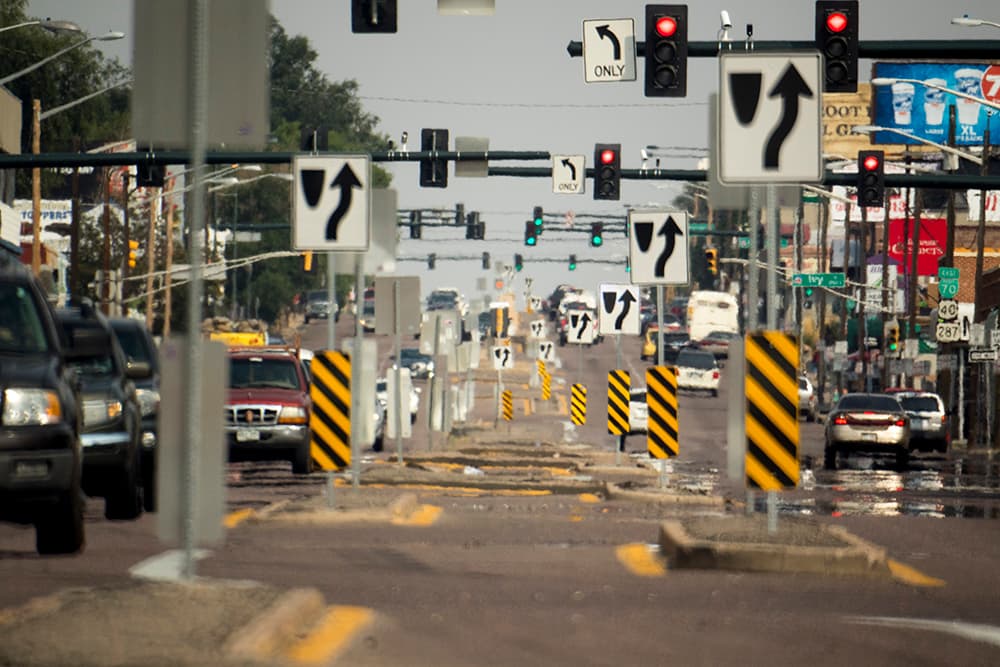
While other sections of Denver gentrify en masse, leaving little room for businesses that aren't craft bars or boutique shops -- Lower Downtown and River North, for example -- I think that Colfax's length precludes a total transformation. Clusters of the avenue are being rebuilt, but there'll always be something more average in between.
Walking along it, I'm reminded of the cities I saw as a kid -- not a derelict wasteland, not an artisan playground, but a place rich with people and details.
I don't know the right word to sum all that up. We heard tons more while we did our reporting. People stopping by our booth wrote the words "dope" and "eclectic" and "dusty" and "intersectional" -- actually, I added that last one.
Whatever your choice is, I hope that you've enjoyed our series on the avenue. We're wrapping up with a happy-hour event on Thursday night at SieFilmCenter. So, maybe you'll come tell us in person.
